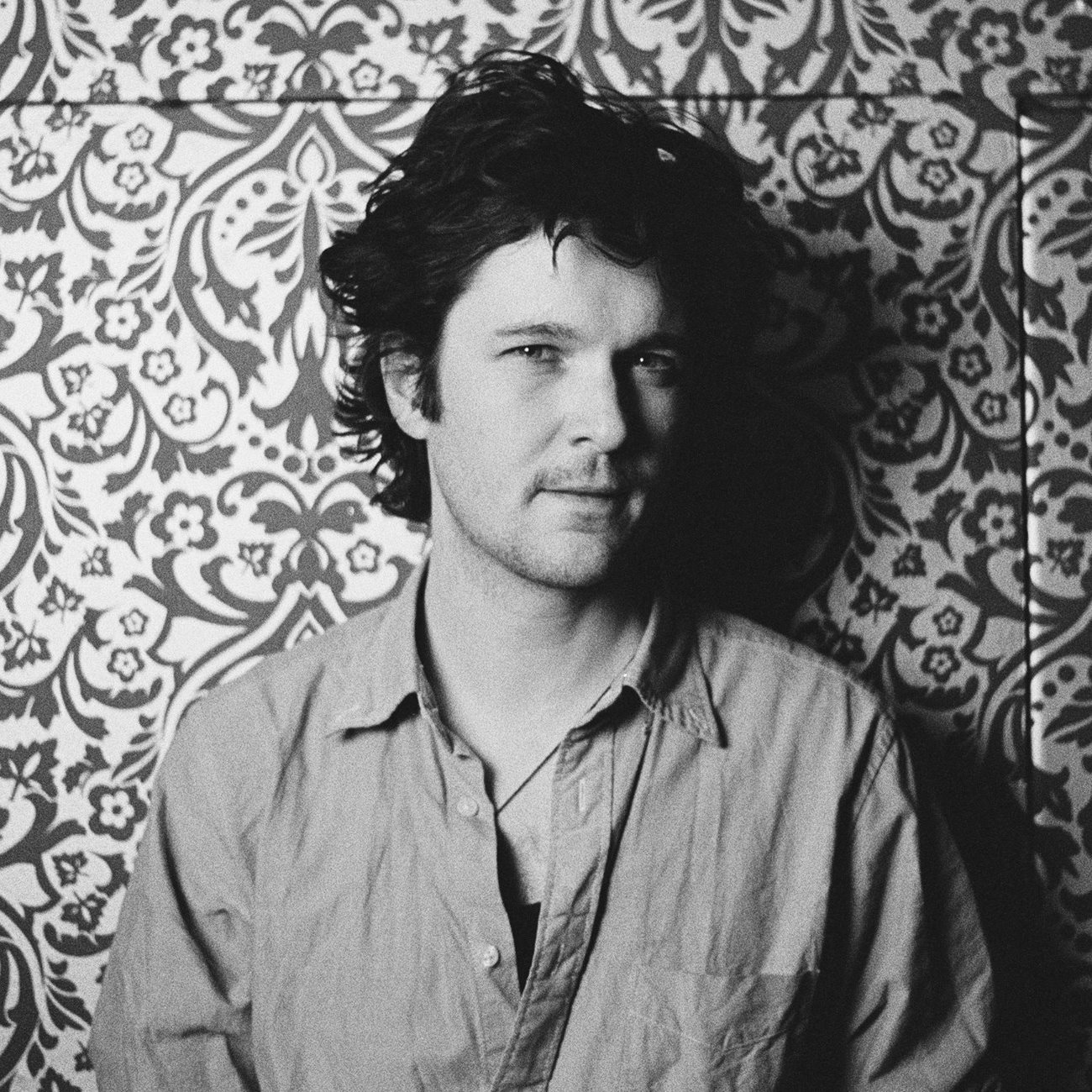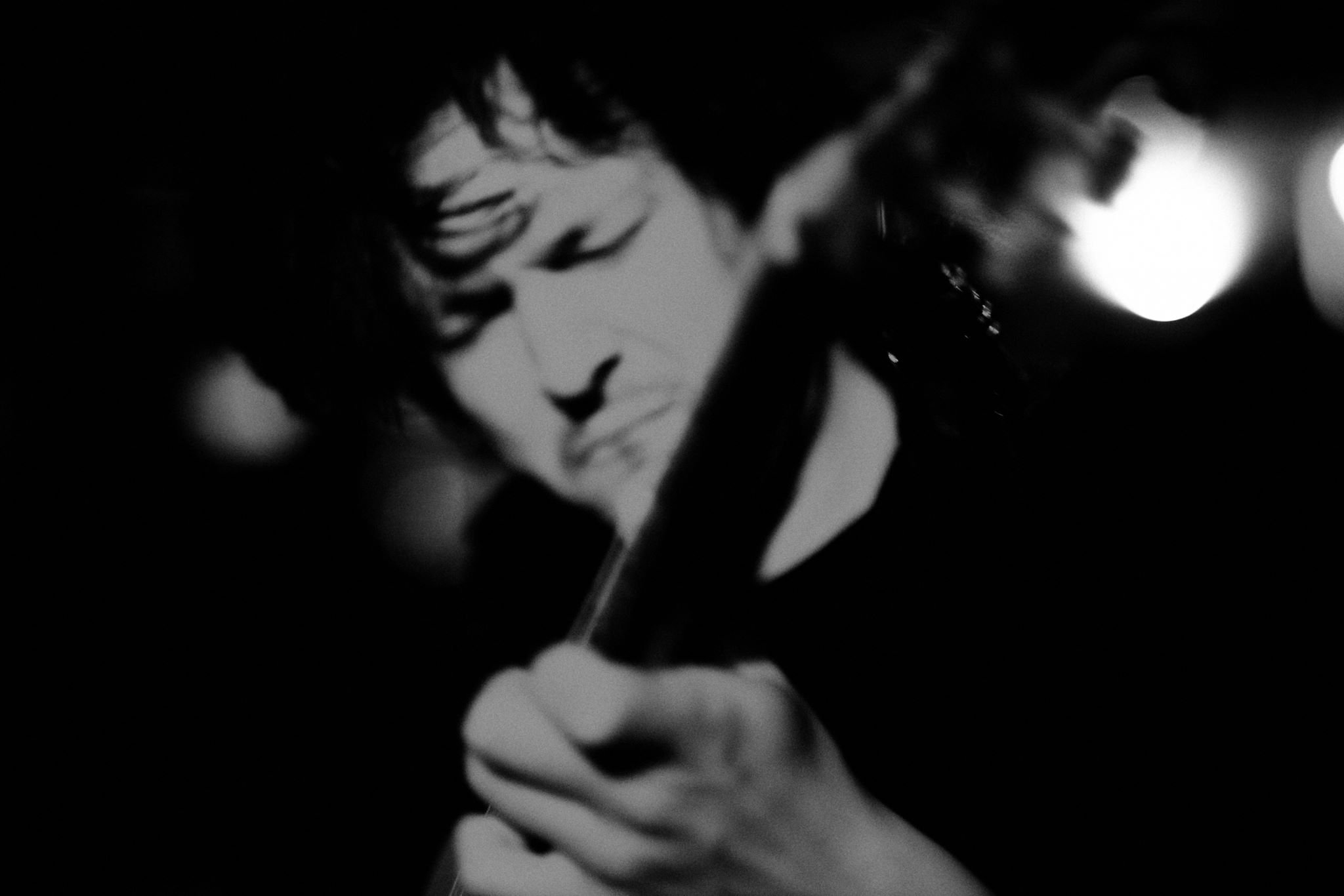The Ned Collette Interview
Tell me about growing up in Melbourne, AU. What was your childhood like growing up? When did you first begin to fall in love with music? Was this something that was relevant around your household growing up?
Melbourne was great, particularly for someone into music. A huge, diverse music scene, hundreds of small venues and a very tight knit community centred around extremely supportive street-press and community radio. It was a place where you could see and talk to icons of Australian rock music playing at the pub – Kim Salmon, Dirty Three etc – but also where there were crowded jazz and avant-garde venues, international acts coming through etc. It’s a huge city, but a small community, if that makes any sense. It’s all still there, everyone young and old still plays in bands and goes to see bands as a matter of course. It’s really expensive now though. I grew up in the inner north, which back then was still full of academics and artists and older first generation Italians and Greeks growing tomatoes in concreted front yards. It felt strangely bucolic back then. Lots of music around the house, filmmakers, writers dropping in, older sisters with records, so yeah. By the time I was 16 I was sneaking into my local pub as often as I could to see whoever was playing.
What would you do for fun growing up? Who were some of your earliest influences in your more formative years? When and where did you see your first concert and when did you realize you wanted to spend your time pursuing music?
We played on the street a lot, skating, kicking (Australian) footballs around, throwing water bombs at cars. Usual stuff. I don’t know if that still happens in post-gentrification inner-Melbourne. The first concert... I mean there are a lot of “first concerts” depending on the context. I did make my older sister take me to see M.C. Hammer when I was about 10. Her friend drove me nuts by referring to him as “McHammer”. Then as a young teenager a lot of all ages shows by local bands like Muffcake, Tumbleweed, Meanies etc. I was into the usual songwriters, Dylan, very big on Joni, and then I had a guitar teacher in my teens who turned me onto jazz and importantly free-improvising. Derek Bailey, George Lewis, Eugene Chadbourne etc. and also stuff like John Abercrombie, all the wonderful early Mothers/Zappa albums. All that kinda sealed the deal. Once I was out of school most of my influences were people I lived and played with in the music scene, some of them a lot older who really imparted the importance of gigging, practising, cooking dinner, saying yes to things, just always playing.
When and where did you play your very first gig and what was that experience like for you? Did you participate in any groups, or projects prior to setting out as a solo musician? You released its debut entitled “Jokes and Trials” back in ‘06 on Dot Dash. Tell me about writing and recording this album. How did the deal with those guys come about? Would you mind giving some background to songs such as “Don’t Talk”, “The Happy Kidnapper”, “Blame” and “Song For Louis”?
I think my first gig was a small music festival in a local park, when I was 15, or 16. Like a battle of the bands but without the competition element. Or maybe it was on the awning of a wild shop full of old gear called Zombie Music. Trams going past underneath. Our friends sat on the curb across the road. We were a trio without a steady name and we were very much into Dirty Three, Syd Barrett, Sonic Youth etc. We were precocious too – we’d adapted a verse from the Tao Te Ching about drifting around feeling nothing in the face of everyone else’s excitement. Then I was in other people’s bands for a long time just playing electric guitar – particular those of Tim Pledger, a wonderful composer and sax player. The first band I properly ran was City City City, which also started as an instrumental composed slash free improv kinda thing, but ended with us singing motorik jams and playing a couple of big festivals. Put out a couple of records.
By then I guess I was 25 and the solo thing came out of wanting more space, more directness, and everything to be easier than wrangling a large collective. But also basically because I was writing more songs rather than composing instrumental music. Lots of words. Jokes and Trials was a handful of demos which I gave to Steve Cross who’d put out the second City City City record, and he really encouraged me to develop that. Dot Dash was his label. All those songs were pretty personal in the way I guess a lot of first song albums are. I certainly wouldn’t be able to tell you as exactly who my current songs are about, but those first ones are all pretty autobiographical. I still occasionally play the songs you mention. Don’t Talk is about trying to hold off the inevitable by just enjoying one last silent moment, or two. Blame is about wanting someone to blame. I think the Happy Kidnapper was basically improvised at the end of a take of Song For Louis, which was about my friend Louis.
That following year you released your follow up LP “Future Suture”. How did you want to approach this material that differs from your previous album? ‘09-’13 saw the release of your next three albums with the guys from Wirewalker. How did you initially meet Ben and Joe?
Future Suture was about putting more elaborate arrangements around the next batch of songs. It was possibly a bad move. I think it worked ok on record but was hard to play live. I didn’t know how to deliver the songs without all the bells and whistles. And it certainly didn’t capitalize on the modest success of Jokes & Trials, was the feeling I got from the label anyway. Going back, Joe and I met and had done a lot of pick-up jazz gigs together when we were studying at university, back rooms of pubs, the odd function, or whatever. Ben I’d known since he was a bassoon-playing high school punk, we’d discovered a lot of music together in our teens. They were both in City City City so they were a natural ask when I decided to put a band around my songs, except Ben was now on bass instead of synths. Bass is Ben’s natural habitat, to this day still my favourite, favourite bass player ever. Ever. You can take McCartney, I’ll take Ben. So Joe and I were living together, running a small studio together, we were all in each others pockets. And the Future Suture tour was predictably frustrating, but by the next album we’d become more open and organic, everyone hanging ideas on the simpler song structures, recording it live. ‘Over The Stones, Under The Stars’. That was a good band album. Still, it was a tricky time. I felt I’d made three pretty good records but it was still a weird in-between time as the old label system was collapsing, and I couldn’t find anyone outside Australia to put the music out. So it was kinda just keeping at it out of some kind of stubborn optimism, with a lot of help from Joe. Then the next couple of albums were made after I relocated to Europe so their contributions were less conceptual, more supportive. But very supportive.
I’d like to jump ahead to your most recent works on Feeding Tube Records and It Records. What was the overall process to these albums and how did you approach the material having collaborated with James Rushford and Joe Talia? I’d love to know more of the backstory to “Dusk” and “Afternoon” from the “Afternoon Dusk” LP.
Feeding Tube changed everything for me. Not only because they were the first to put out any album of mine in the US, but because they’re also a very rare label that as a listener, I’m actually pretty interested in most of what they put out. And as we all know, they put out a LOT. And that’s why they have such a great reputation and why, when I finally started touring the US more regularly, people would already know a little of my work and it felt like there was a reason for it all. My recording process has essentially been a solo one since I moved to Berlin, but people like Joe and James are often here for extended stretches so we always get into the studio a few times and just make stuff up, perhaps with little structures, perhaps not. The two pieces on Afternoon–Dusk came out of sessions like that, one with Joe and one with James, which Joe and I then edited and elaborated on. I shelved it while I was making Old Chestnut, which was very much a solo song trip with a lot of additional players who came in and out of Berlin over 2015/16. Chris Abrahams and Judith Hamann for example. That was my first record for Feeding Tube. After it was out and had sold through a couple of pressings I asked if they’d be interested in the two long pieces of Afternoon–Dusk and they were keen. I don’t think it sold through a couple of pressings... haha. But I still like it a lot.
What else does the rest of 2023 look like for you guys? Any shows/ tours in the works? Is there anything else you would like to further share with the readers?
I’m heading out on a short run of solo dates in Germany/France/Italy next week. It’s been a while since I’ve done any solo stuff in Europe so that’ll be interesting. We’re also working on a sort of big band/revue type project with two of my favourite songwriters Leah Senior and Michael Beach, who are both based in Melbourne. We did it a couple of times there in March and we’re looking at ways to remount it next year. That also involves Mick Turner from Dirty Three, Ben and Joe, Leah’s main collaborator Jesse Williams etc. It’s a fantastic way to mix things up, a kaleidoscopic mess – everyone playing each other’s songs, no particular order, irreverent chaos. It’s a lot of fun, for the audience too I think. Otherwise I’m finalising a new song album, which has taken a long time, much longer than I would have liked, but the pandemic and the perfect shitty storm of putting music out these days kinda took its toll. I shelved some things along the way, but that means I have a lot of material ready to go now, so once it starts coming out again hopefully there’ll be a few releases following in short order.







